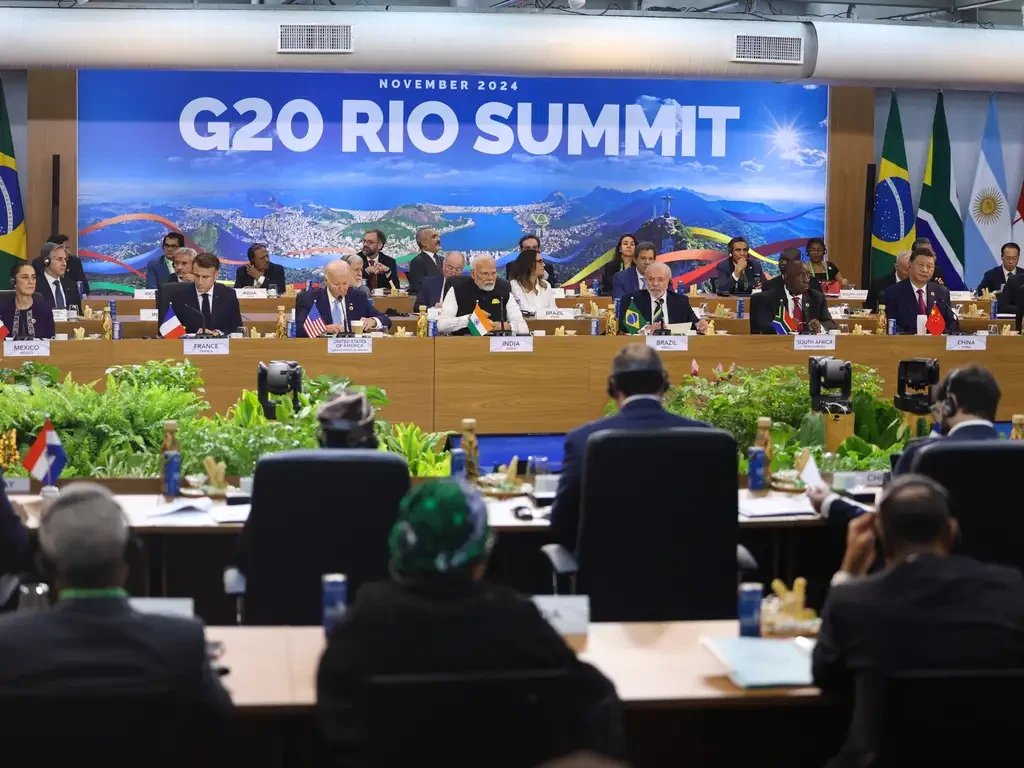Under the leadership of Brasil, the Alliance against Hunger brings together efforts from 82 countries
Argentina initially refused to join the pact but reversed its decision. Participating countries must implement concrete measures to reduce food insecurity and poverty.

With the accession of 82 countries, President Lula launched the Global Alliance Against Hunger and Poverty on monday (18) during the first day of the G20 Leaders' Summit. In addition to the nations, 2 continental blocs, 24 international organizations, 9 financial institutions, and 31 philanthropic and non-governmental organizations also made a commitment to the Alliance. Initially, Argentina did not adhere to the proposal but reversed its decision after the launch and signed it.
The countries had to announce concrete measures to fight hunger and poverty domestically and globally to confirm their membership. According to the government, the alliance proposed and led by Brasil will accelerate the fulfillment of the UN's 17 Sustainable Development Goals (SDGs). Among the goals are zero hunger and sustainable agriculture, reducing inequalities, and eradicating poverty.
Impasses do not prevent consensus
Argentina's initial refusal came after signs that the country's president, Javier Milei, would prevent consensus on gender equality and taxation of the super-rich in the group's final declaration. A report from Folha de S.Paulo indicates that Brasil will keep the themes in the document despite Argentina's restrictions.
Argentina's lack of consensus with the other bloc members does not prevent the implementation of measures in countries that have already committed to the Alliance. This is because a country can refuse a document, which, depending on the number of refusals, weakens its strength. Another option is for the country not to reject the document but to withhold agreement on the consensus, which forces the other countries to make modifications until a consensus is reached.
It is also not unprecedented for a country to refuse to sign a joint communiqué at the G20 until, with modifications, the group of countries reaches a consensus or for the document to be released even with some public opposition. During the 2023 G20 Summit in India, some member countries objected to some terms used to refer to the war in Ukraine.
Board of Champions
In addition to the Global Alliance, the Board of Champions was established. This governance format adopted by the program is linked to the G20 but not restricted to it. The chosen ones are the managers of the Global Alliance Against Hunger and Poverty in different parts of the world who act as advisors. Until it is fully instituted, there will be a Support Mechanism in which Brasil will offer support to the administration.
The first 18 champions were announced today. To be chosen, they must be recognized representatives in their countries or organizations and have the power to implement actions related to the Alliance's theme. The champion chosen by Brasil was the Minister of Social Development and Assistance, Family and Fight Against Hunger, Wellington Dias. The choice of the 18 members is related to their participation in constructing the Alliance in their territories and to their work in the G20.
The first council meeting will occur in the first quarter of 2025, when the body will be officially established. These advisors are responsible for monitoring the progress and effective implementation of the actions planned by the countries. Until its entire constitution, the Board may have up to 50 members, 25 countries, and 25 organizations. The idea is that countries not part of the G20 but have joined the Alliance also participate in the Board. The following G20 host country, South Africa, is also part of the Board.
The Alliance's next step will be to implement the proposed measures. Each country is free to enhance existing projects, like Sierra Leone in West Africa, which aims to expand school feeding coverage from 54% to 100% of students by 2030. Creating new programs to reduce poverty and hunger in their territories is also possible. The Alliance will establish a global coordination of 81 countries integrated into the Board of Champions. The project's headquarters will be in Rome, where the FAO (Food and Agriculture Organization of the United Nations) office is located, and the other will be in Brasil.
By Everton Victor and Julia Lima. Content originally published by the Scientific News Agency of the Rio de Janeiro State University (Agenc)
*Translated by PGET-UFSC